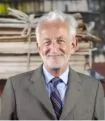State aid for a dredger in the port of Klaipeda
Lithuania sought to provide aid for the purchase of a dredger for the Klaipeda State Seaport Authority as there are no dredging services offered on the Lithuanian market and is currently served from Denmark, Germany, the Netherlands and Belgium. The aid covers the purchase of a dredger of about 70 meters in length with a draught of 4.5 meters and a deadweight of about 2000 tonnes. The state is providing 85% with the port providing 15% of the cost. The aid was authorized on the basis that the cost could not be recovered over a 25-year period and no commercial operator would provide the necessary funds.
The new European Commission
The European Commission is the executive of the EU and has the exclusive competence to propose new legislation which is then adopted by the two houses of the legislature: the European Parliament and the European Council (made up of the representatives of the governments of the Member States). The College of Commissioners is the decision-making authority within the Commission. The College has a term of 5 years.
The search for a new Commission President started at the end of May and should be completed by the end of June. Once the President is nominated collectively by all Member States then he or she will seek to fill the College with Commissioners nominated by each Member State. The nominate President must be formally approved by the European Parliament. Thus, Member States when nominating the President will have their eye on the balance of power in the Parliament. They usually seek to nominate a person from the same political family that makes up the majority in the Parliament.
The new European Parliament
It is generally accepted in Brussels that the nationalist tide was not as high as expected and that the traditional dominant parties, the conservatives and the socialists while they lost seats did not collapse. The Liberals and the Greens increased their presence. Overall the number of pro-EU MEPs outweighs the Eurosceptics by about 7:1. The champions of the Parliament for the job of President of the Commission are the conservative Weber from Germany, the socialist Timmermans from the Netherlands and the Liberal Vestager from Denmark. Because the conservatives and the socialists lost ground, Vestager is considered the front runner but she does not have the support of Germany or France. The new Parliament will meet in July.
What's on the EU's agenda for the next five years
As of the middle of 2019 the two big issues facing the next Commission will be crafting the policies necessary to counter climate change and how to ensure a fair-trading system in the global economy.
The core of the EU's climate policy is the emission trading system. The next phase has been agreed and the number of emission allowances will be reduced thus pushing up the price of carbon. The issues that still have to be addressed are how to expand this core policy to other sectors like transport, whether the EU should introduce charges at the border equivalent to the cost of carbon in the EU and working out how to decarbonize manufacturing and the economy in general.
Trade policy has come to the fore with the new policies in the United States which are reintroducing tariffs and undermining the rules-based trade system that is found in the World Trade Organization. The core concern in the Commission is how to address unfair trading practices promoted by many developing countries and in particular China, Russia, the energy rich countries in North Africa and the Middle East. For many years the view in Brussels was that China was an opportunity.
EU funds for rail transport in Sicily
In early April the Commission agreed to invest €358 million in EU funds to help extend the Circumetnea railway line operating in Catania in Sicily for 8 new stations and rolling stock. The funds are part of the EU's Cohesion Policy funds.
EU funds for the Port of Gdansk
The EU is also providing €155 million for breakwater infrastructure and €65 million to help build and modernise quays and hydro-technical engineering structures to improve safety in the port.
The content of this article is intended to provide a general guide to the subject matter. Specialist advice should be sought about your specific circumstances.

